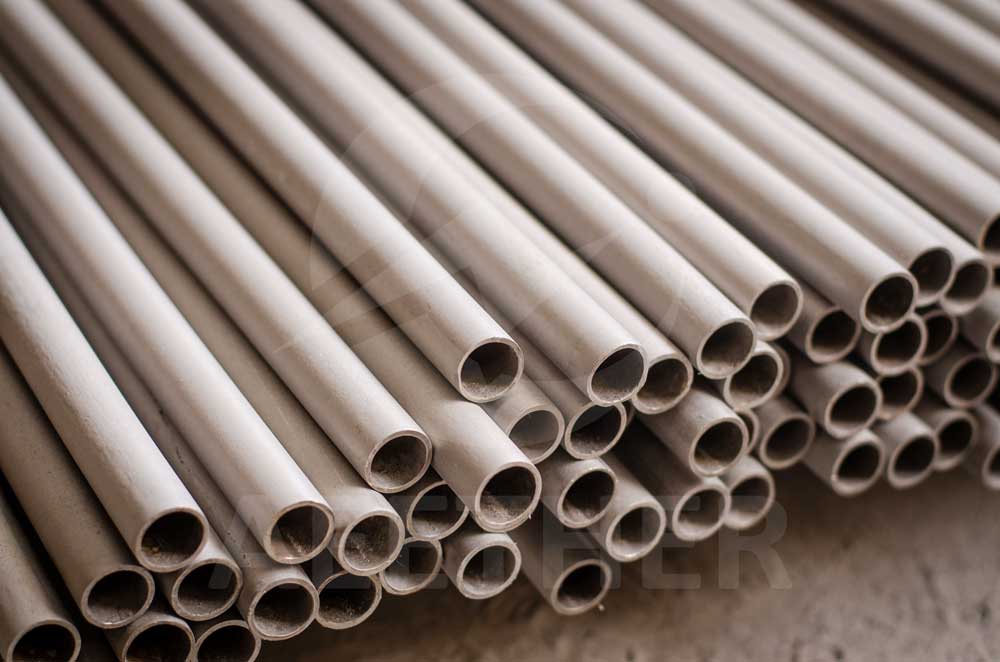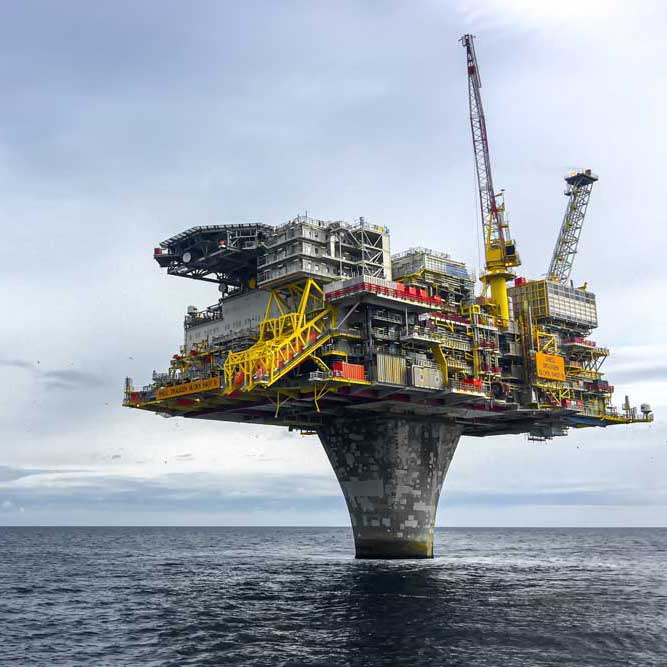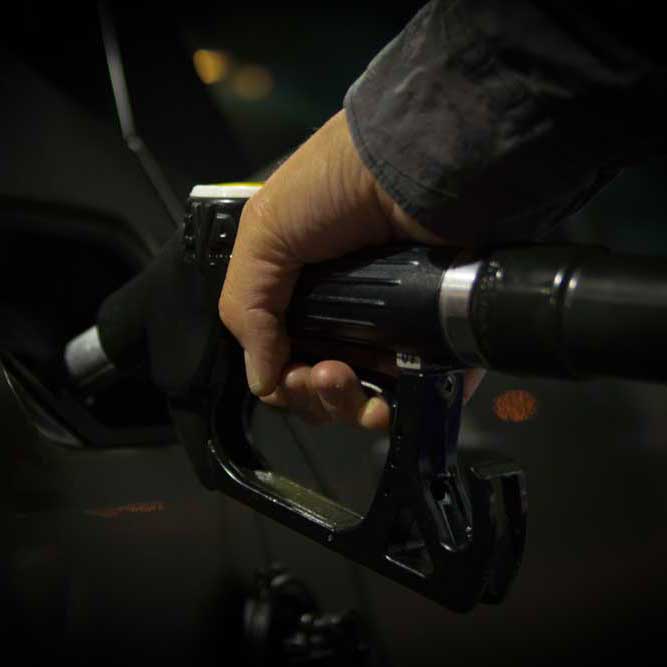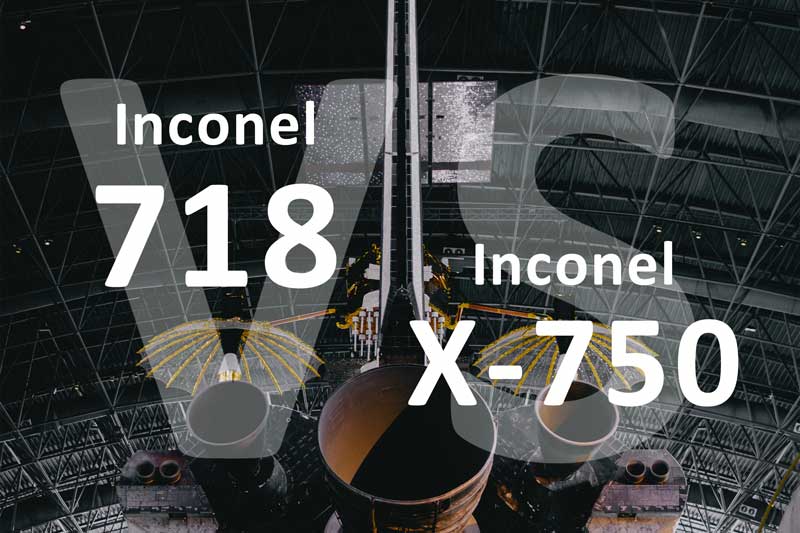Inconel Alloy
X-750
Inconel X-750 Introduction

Precipitation
Strengthened Alloy
Resistance
Behavior
Overview
As a leading supplier & manufacturer in China, AEETHER supply cost-effective Inconel X-750 Products.
INCONEL® alloy X-750 (UNS N07750 / W.Nr. 2.4669) is a precipitation-hardenable nickel-chromium alloy used for its corrosion and oxidation resistance and high strength at temperatures to 1300°F. Although much of the effect of precipitation hardening is lost with increasing temperature over 1300°F, heat-treated material has useful strength up to 1800°F. Alloy X-750 also has excellent properties down to cryogenic termperatures.
The economics of INCONEL alloy X-750 coupled with its availability in all standard mill forms has resulted in applications in a wide variety of industrial fields. In gas turbines, it is used for rotor blades and wheels, bolts, and other structural members. INCONEL alloy X-750 is used extensively in rocket-engine thrust chambers. Airframe applications include thrust reversers and hot-air ducting systems. Large pressure vessels are formed from INCONEL alloy X-750. Other applications are heat-treating fixtures, forming tools, extrusion dies, and test machine grips. For springs and fasteners, INCONEL alloy X-750 is used from sub-zero to 1200°F.
Depending on the application and the properties desired, various heat treatments are employed. For service above 1100°F, particularly where loads are to be sustained for long times, optimum properties are achieved by solution treating (2100°F) plus stabilization treating (1550°F) plus precipitation treating (1300°F). For service below 1100°F, the alloy may be strengthened by precipitation treating after hot or cold working or by precipitation treating after equalizing or solution treating. A furnace-cooling treatment is also used to develop optimum properties for some applications.
The various heat treatments and the properties developed are described under the section on Mechanical Properties. Property values in this bulletin – the results of extensive testing – are typical of the alloy but, unless shown as limiting, should not be used as specification values.
Mechanical Properties
INCONEL alloy X-750 may be given any one of a variety of heat treatments. Each develops special properties and puts the product form in the best condition for its intended application. In all conditions, alloy X-750 is resistant to oxidation up to 1800°F. The most often used heat treatments have been incorporated by the Society of Automotive Engineers in their AMS specifications* for various product forms.
Corrosion Resistance
INCONEL alloy X-750 is resistant to a wide variety of industrial corrosives under both oxidizing and reducing conditions. It resists oxidation and attack by other hightemperature corrosion mechanisms.
In hot corrosion tests for automotive applications, weight loss after exposure for 100 hours in 90% Na2SO4 + 10% NaCl mixture in air was about 5%. Samples precoated with sodium chloride (by dipping in a hot saturated salt solution), suspended in a furnace at 1700°F and exposed for 100 hr to a moving gas stream of air containing 1% SO2 exhibited a corrosion penetration of approximately 0.007 in.
An interesting feature of this alloy is its high resistance to chloride-ion stress-corrosion cracking even in the fully precipitation-hardened condition. Standard U-bend specimens of precipitation-hardened material (hardness, 33 Rc) showed no signs of cracking when exposed to boiling 42% magnesium chloride for 30 days.
Inconel X-750 Chemical Composition
Try our Premium Products








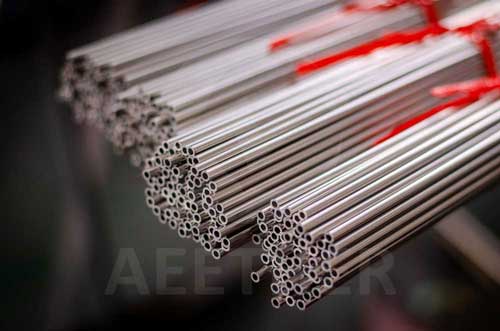




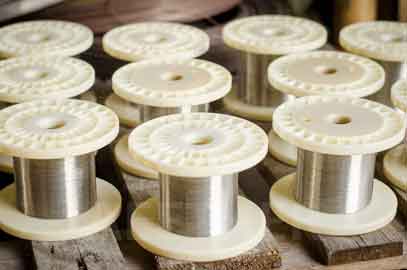







Inconel X-750 Standards
Data Sheet
Physical Properties
| Density | g/cm3 | 8.28 | |
|---|---|---|---|
| lb/in.3 | 0.299 | ||
| Melting Range | °F | 2540 - 2600 | |
| °C | 1393 - 1427 | ||
| Curie Temperature | As hot-rolled | °F | -225 |
| Triple-heat-treated (2100°F/2 hr, A.C.,+1500°F/24 hr, A.C., + 1300°F/20 hr, A.C.) | °F | -193 | |
| Emissivity, oxidized surface | 600°F | 0.895 | |
| 2000°F | 0.925 | ||
Mechanical Properties
| Rods, Bars and Forgings | ||||
|---|---|---|---|---|
| Size, in. | Tensile Strength, ksi | Yield Strength (0.2% offset), ksi | Elongation in 2 in., % | Reduction of Area % |
| Under 4.0 | 165 | 105 | 20 | 25 |
| 4.0 and over | 160 | 100 | 15 | 17 |
| Under 2.50 | 170 | 115 | 18 | 18 |
| 2.5 to 4.00, excl. | 170 | 115 | 15 | 15 |
| 4.0 and over | – | As agreed upon between purchaser & vendor | ||
| Sheet, Strip and Plate | ||||
| Form and Size, in. | Tensile Strength, ksi | Yield Strength (0.2% offset), ksi | Elongation in 2 in., % | Hardness, Rc |
| Annealed Condition | ||||
| Strip | ||||
| Under 0.010 | 140 max. | – | – | – |
| 0.010 to 0.025, excl. | 130 max. | – | 20 min. | – |
| 0.025 & over | As agreed upon between purchaser & vendor | |||
| Sheet | ||||
| 0.010 to 0.024, incl. | 140 max. | – | 30 min. | – |
| Over 0.024-0.125, incl. | 130 max. | 60 max. | 40 min. | – |
| Over 0.125-0.250, incl. | 130 max. | 65 max. | 40 min. | – |
| After Precipitation Treating (1300°F/20 hr, A.C.) | ||||
| Strip | ||||
| Under 0.010 | 150 min. | – | – | 30 min.(0.005 & over) |
| 0.010 to 0.025, excl. | 155 min. | – | 15 min. | 30 min. |
| 0.025 & over | 155 min. | – | 15 min. | 30 min. |
| Sheet | ||||
| 0.010 to 0.025, incl. | 165 min. | 105 min. | 20 min. | 32 min. |
| Plate | ||||
| 0.187 to 4.000, excl. | 155 min. | 100 min. | 20 min. | 30 min. |
| Seamless Tubing | ||||
| Tensile strength | 155 ksi | |||
| Yield strength (0.2% offset) | 100 ksi | |||
| Elongation in 2 in. | ||||
| Strip specimen | 15% | |||
| Full tube specimen | 20% | |||
| Rupture life (1350°F/45 ksi) | 23 hr | |||
| Wire | ||||
Inconel X-750 Applications
Related Article
More Inconel Grades +
600
Si
C
Mn
Cu
Fe
Cr
Ni
601
Si
C
Mn
Al
Cu
Fe
Cr
Ni
601GC
Si
Mn
Al
Cu
Fe
Cr
Ni
602CA
Si
C
Al
Y
Fe
Cr
Ni
603XL
Si
C
Al
Ti
Mo
Cr
Ni
617
Si
C
Mn
Al
Ti
Cu
Co
Mo
Fe
Cr
Ni
625
Si
C
Al
Ti
Co
Ta
Mo
Fe
Cr
Ni
625LCF
Si
Al
Ti
Co
Ta
Mo
Fe
Cr
Ni
686
Mn
W
Mo
Fe
Cr
Ni
690
Si
Cu
Fe
Cr
Ni
693
Si
C
Mn
Al
Ti
Cu
Nb
Fe
Cr
Ni
706
Si
Al
Ti
Co
Nb
Fe
Cr
Ni
718
Si
C
Al
Ti
Co
Nb
Ta
Mo
Fe
Cr
Ni
718SPF
Si
Al
Ti
Co
Nb
Mo
Fe
Cr
Ni
725
Si
Al
Ti
Nb
Mo
Fe
Cr
Ni
740H
Si
Mn
Al
Ti
Cu
Co
Mo
Fe
Cr
Ni
X-750
Si
C
Mn
Al
Ti
Cu
Co
Fe
Cr
Ni
751
Si
C
Mn
Al
Ti
Cu
Co
Fe
Cr
Ni
MA754
Al
Ti
Fe
Cr
Ni
MA758
Al
Ti
Fe
Cr
Ni
783
Si
Al
Ti
Cu
Co
Nb
Fe
Cr
Ni

